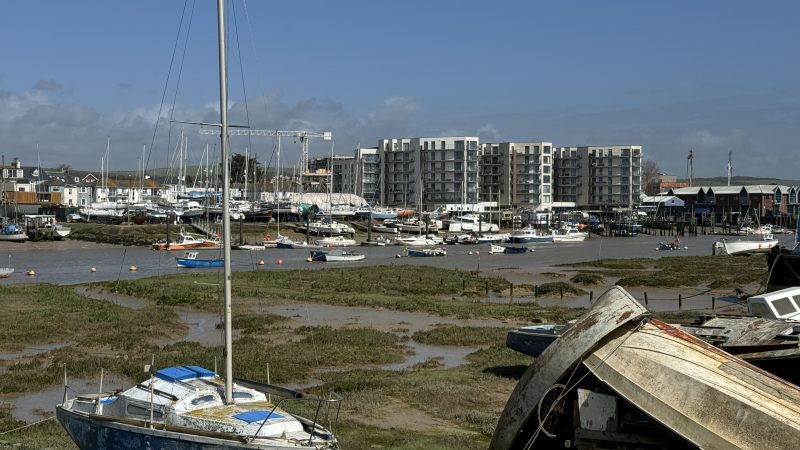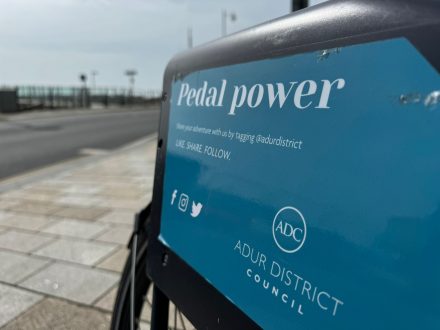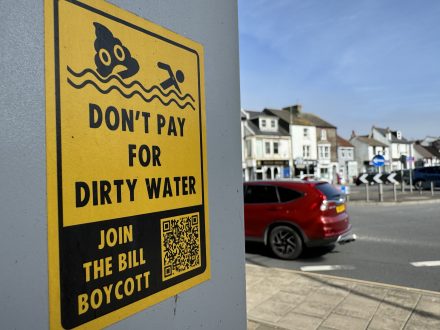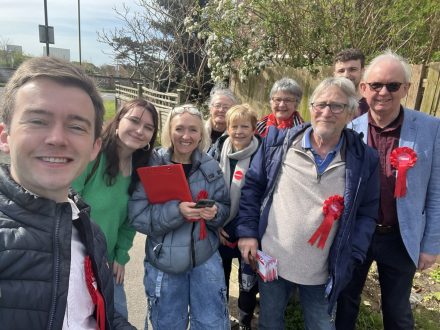
With the eyes of many a political pundit fixed on local election battles in the “red wall”, you could be forgiven for not putting the contest in areas like Adur on the south coast top of mind. After all, the council has been in the control of the same Conservative leader since the turn of the millennium.
Yet voters appear on the brink of turning another Sussex district council red for the first time in its history, after Labour seized control in neighbouring Worthing in 2022.
That would mark an historic transformation in itself. But it would be all the more noteworthy for the further looming change it could signal too at the general election, on this stretch of coast and perhaps many more seaside towns beyond it.
Tory-supporting think tank Onward has even called coastal areas “the forgotten battleground that could decide the next election”.
Labour had not a single seat in the recent past
Adur council sits entirely within the borders of the Labour target seat of East Worthing and Shoreham, held by Tory MP Tim Loughton since its creation in 1997.

Over the course of a decade, Labour’s support has grown from not a single seat on the council to securing the most votes and coming close to depriving the Tories of an overall majority at the last local elections in 2022.
Tory council leader Neil Parkin himself came within 12 votes of being deposed by his Labour challenger, despite switching to a different ward.
Now Labour councillors and activists are hoping to go one step further next month and gain the six seats needed to secure an overall majority – something Labour group leader Jeremy Gardner believes is well within their grasp.
LabourList sat down to hear more about the campaign with Gardner and campaign lead Denyse Whillier, in a cafe in Shoreham, the district’s biggest town, near the River Adur from which the district gets its name.
Gardner said: “We’ve got a clear pathway for a majority. What size? The shock collapse of the Tory vote could give us a bigger majority.”
‘We’ve been campaigning every week since June’
Some 15 of 29 seats across the council are up for election on May 2nd. The campaign to take control of the council has been almost a year in the making, with activists knocking on doors since June of last year.
Whillier added: “We’ve been out campaigning several times a week, every week, talking to people about what’s upmost in their mind.
“We had a survey where we asked for a positive and negative word about the area and another question about their number one concern – so we were getting the feedback that then very much fed into the manifesto process.
“All of our targets we have been around at least three times because we started early. We’ve obviously talked to an enormous number of voters and, from a campaign perspective, it affects our messaging because we’re using their words in the manifesto and in our communications.
“You have certain key themes that come up over and over again and we’re reflecting that.”
The key issues on the doorstep
Antisocial behaviour, potholes and the cost of living crisis are among the most prominent issues being brought up on the doorstep, alongside the need for more infrastructure to cope with the large number of housing developments in the area, according to councillors.

“We’ve got more than 1,000 flats going up in one place and people are concerned that things like school places and GP appointments are just not keeping up,” Gardner explained.
As anyone can tell from glancing at the number of Extinction Rebellion stickers slapped on lampposts across the town centre in Shoreham, sewage spills are also a concern among residents.
“Sewage frequently goes from Southern Water outfalls into the River Adur or the coast,” Cllr Gardner said.
“People like to do all sorts of water activities but they are really conscious that the river is not healthy.
“I was walking down the street a few weeks ago and someone walked up to me and said: ‘You’re the mouthpiece for sewage’ – it’s something I’ve been raising a lot.”
Shadow Environment, Food and Rural Affairs Secretary Steve Reed visited Shoreham Port too this week, meeting residents to listen to residents’ anger at sewage.
Micro-tailored and targeted campaigning
Becky Allinson was the Labour candidate who came within a dozen votes of defeating the Conservative council leader.
She is running again for election and said she has noticed distinct patterns across different parts of Adur while out canvassing.
“We’ve been out listening to all of the different wards. I think what’s nice is that the issues vary according to the different wards, so you’ve got a sort of micro-idea of what is most upsetting people.
“The cost of living came through the highest across the board, but when you go to certain areas, overdevelopment becomes more important, as well as antisocial behaviour.
“You can start to have differentiated discussions with those different groups of people as to where they live and how they feel about things – and I think that’s been really helpful for us to put forward our candidates and our existing councillors to understand what it is that’s really upsetting residents.”
Approached for comment, Conservative council leader Neil Parkin emailed back: “I think not.”
Out in St Mary’s this afternoon with Steve Reed, shadow Secretary of State for the Environment. Earlier Steve, Labour parliamentary candidates @tomrutland (E Worthing and Shoreham) and @BeccyCooper4Lab (West Worthing) heard from local residents about sewage in our streets and sea pic.twitter.com/c4wDEQwusO
— Councillor Jeremy Gardner (@Jeremy4StMarys) April 10, 2024
Learning from success in Worthing
Following Labour’s success in neighbouring Worthing in 2022, where they took control of the council for the first time, party activists and councillors have taken inspiration from elements of their campaign, and learnt lessons from their time in administration.
In particular, Labour’s manifesto in Adur promises to “listen to, work with and act for the community”, similar to Worthing Labour’s promise in 2022 to be a “listening, community-first council”.
However, Gardner also said that an incoming Labour administration in Adur would have the “great advantage of coming to power a couple of years after Worthing”.
“We can see what worked well for them – and what didn’t work so well or took longer than expected,” he said.
What is behind the shift to Labour in Adur, having been Conservative-controlled for so long? Denyse said it goes beyond the “coastal drift” of younger people moving to the district to escape higher costs of renting in Brighton.
“It is absolutely part of it but there are so many factors,” she said.
“What you’re also seeing is young families in general who are seeing the effects of living here and bringing their children up here – and they are changing their ideas about what their politics would be.”
Could a Labour local win spell defeat for Tory MP?

Crucially for Labour on a national level, the entire council region makes up the bulk of the key target seat of East Worthing and Shoreham. The constituency, which is represented by Tory MP Tim Loughton and has never elected a Labour MP, needs just over a 7% swing to flip.
Labour’s candidate Tom Rutland said the party had been campaigning hard in traditionally Conservative-held wards and found that many lifelong Tories will be backing Labour next month.
He said: “They are telling us that our community and the country as a whole need change, and that the Conservatives – who have run Adur District Council for more than two decades, and the country for 14 years – have failed and that the people who have gotten us into this mess are not the right people to clear it up.
“At a local level, they have been impressed with the work of Adur’s energetic Labour councillors and campaigners and our plan for a fairer, greener Adur.
“Many have said they just want to get things working again and they’re excited to vote for Keir Starmer’s changed Labour Party when the Prime Minister finally has the guts to call a general election.”
They may not be alone, as research in January for think tank Labour Together found coastal communities largely voted Tory in 2019, but a recent poll of voters who live near the sea found them backing Labour by 44% to 24%.
Notably, they also described coastal seats as bellwethers, with analysis suggesting they disproportionately backed the Tories in 1987 and then shifted towards Labour by 1997.
Labour Together strategy director Josh Williams said at the time: “Take a look at the polls now and the story is clear: the tide is turning, and the Tories are at risk of being swept away.”




More from LabourList
‘Factionalism at the top is weakening Labour – and handing a gift to Reform’
‘Europe must stand strong on its own as US security guarantees grow conditional’
‘Tackling poverty should be the legacy of Keir Starmer’s government’